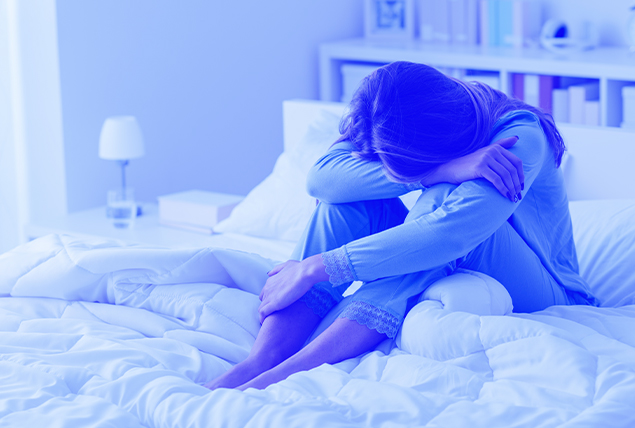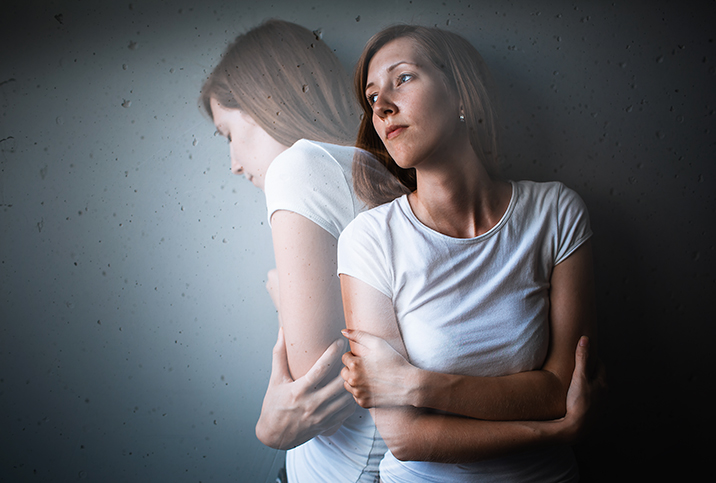Can Birth Control Cause Depression?

Though common, depression is a serious mood disorder impacting thoughts and behavior. It is more than feeling a little sad from time to time. Depression can cause feelings of intense sadness, hopelessness and suicidal ideation.
Depression can lead to a loss of interest in hobbies and impact appetite and sleep. It ranges from mild to severe and can occur due to a number of factors. But is depression sometimes caused by hormones in the pill or other contraceptives?
How common is depression among women?
Depression is a common mental illness, especially for people of reproductive age, a 2018 Stanford report suggested. The rates of depression are high for women. In fact, women are also twice as likely as men to have depression, according to Cleveland Clinic.
Incidents of depression may increase during puberty, with fluctuating sex hormones likely contributing. Hormonal changes could help explain why the premenstrual phase can bring on depressive symptoms.
Combined hormonal birth control pills can cause weight gain, breast tenderness, headaches, nausea or bloating. But is depression definitively linked as a side effect? Some birth control brands list depression as a side effect on panel inserts, although clinical research is mixed on whether there's a direct link.
Regarding birth control, some individuals report that their type of hormonal birth control method, such as the birth control pill, patch, vaginal ring, implant, injection or intrauterine device (IUD), caused depressive symptoms.
Links between depression and birth control are mainly anecdotal, with limited research. Birth control does not necessarily lead to depression, but there could be an association between the two, suggested a 2020 study.
"Recently, there has been a growing concern over the potential link between birth control and depression," said Ketan Parmar, M.D., a Mumbai, India-based psychiatrist and sexologist with ClinicSpots. "It is important to note that the research connecting birth control and depression is still inconclusive."
The side effects of birth control may also depend on the specific type and individual.
Could birth control lead to depression?
Research is highly variable around whether or not hormonal birth control causes depression. Oral contraceptive pill use is common during reproductive years and is the most prescribed form of birth control. Oral contraceptives contain progestin and estrogen, or only progestin.
Hormones in birth control work by:
- Reducing or preventing ovulation
- Thickening cervical mucus, which makes it harder for sperm to enter the uterus
- Thinning the uterine lining so a fertilized egg is unable to attach
Unfortunately, there's no way to tell if a specific method of birth control will cause depression. A 2022 study suggests hormonal contraceptives may be linked to depression by influencing neurochemistry, but the evidence is mixed.
Hormones in birth control pills can affect the levels of neurotransmitters in the brain, which can influence mood and emotional well-being, Martha Tara Lee, D.H.S., a clinical sexologist, said. It's also impossible to assess individual risk in how hormonal birth control could affect you.
"The risk of depression varies from person to person and depends on several factors, including age, medical history and genetics," Lee said.
Before starting a method, telling your doctor about any history of mood disorders, such as depression, can be helpful.
"They can help you determine if hormonal birth control is right for you or if another method may be a better fit," Lee said.
While predicting the symptoms of birth control is unlikely, "It is important for those who are considering using hormonal contraception methods such as the pill or patch to discuss any potential risks with their doctor," Parmar said.
Research is also mixed about taking birth control with pre-existing depression. A 2022 study suggested that progestogen-only birth control should be used with caution for those with depression.
"Individuals with depression in their medical history may be more likely to experience mood disturbances as a result of taking these types of birth control. If you have depression in your history and are considering using one of these contraceptive methods, it is important to speak to your doctor about potential risks and benefits," Parmar said.
What other considerations should you know about birth control and depression?
On the other hand, could birth control positively impact mood? A 2022 study revealed that out of 3,320 college-age students surveyed, those taking hormonal birth control had lower overall depression scores than those not taking birth control. The study suggests hormonal birth control could help some people with depressive symptoms.
"Some forms of birth control, such as hormonal IUDs or the implant, can help regulate mood and reduce symptoms of premenstrual syndrome (PMS) or premenstrual dysphoric disorder (PMDD). However, it's important to note that not all women will experience the same benefits," Lee said.
For some people, certain methods of birth control impact mood positively. By regulating certain hormones, birth control can improve mood stability and reduce symptoms of depression in some individuals, Parmar explained.
"Long-term use of progestin-only contraceptives, such as an IUD, has been shown to reduce the risk of depression in some individuals. Additionally, using non-hormonal birth control methods such as condoms can also help prevent pregnancy while avoiding potential mental health risks associated with hormonal contraception," Parmar said.
It is also important to note that depression is a mental health condition and can be caused by many other factors outside of hormonal contraception, Parmar said. With any new depressive symptoms, Parmar recommended following up with your provider.
The bottom line
Birth control side effects vary based on the individual.
"When any medications are changed, the body can respond in ways that are unintended. That doesn't mean to avoid the medications, but rather to be aware of your own body and speak up about it," Wendy Schofer, M.D., a pediatrician in Wilmington, Delaware, said.
Schofer explained that after starting a new method, a follow-up appointment with a physician within a few weeks of beginning or changing any medication is key to ensure that the response is intended.
If you happen to notice symptoms after taking birth control, a provider may recommend switching to a different method or adjusting the dosage, Lee said.
While a number of women may report depression as a symptom while taking birth control, empirical evidence linking the two is not definitive. There are many factors at play. However, if you feel depressed after starting a new birth control method, talk to your doctor.


















